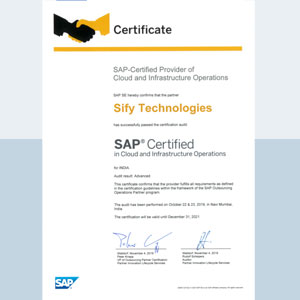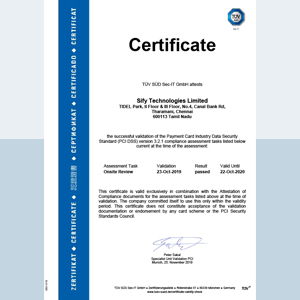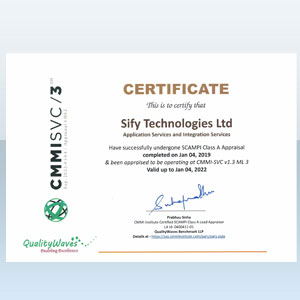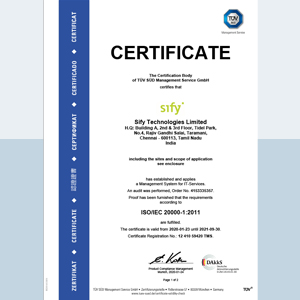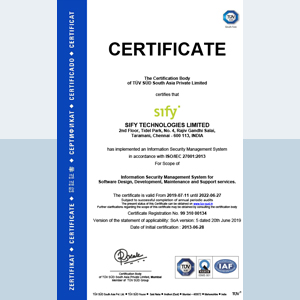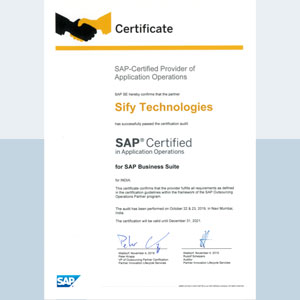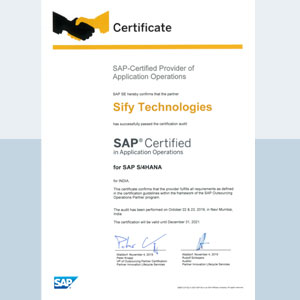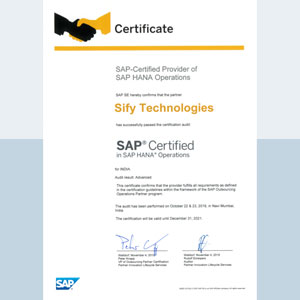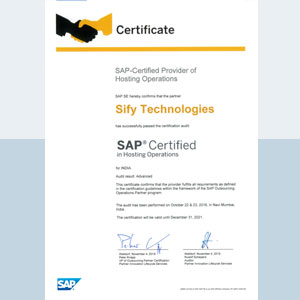Table of contents
What is Enterprise Networking?
Today, businesses rely on robust and scalable network infrastructure to ensure 24/7 network availability and seamless operations. Enterprise networking refers to the architecture, technologies, and processes that organizations use to connect their data centers, cloud services, devices, and remote offices. It also facilitates secure cross-platform connectivity with vendors, partners, and employees, enabling remote access and collaboration from anywhere, at any time. Unlike consumer networking, which focuses on personal devices, enterprise networks are business-grade, designed to support large-scale operations with the highest standards of security, reliability, and performance across multiple locations.
Enterprise Networking Benefits
Every enterprise needs a networking solution that is tailored to their operational needs, ensuring trouble-free support for workflows, production processes, customer interactions, logistics, and beyond. Enterprise networking is known to offer the following benefits:
- Improved Team Collaboration: Teams can collaborate easily through shared resources, working from home, in the office, or at a distributed location like a factory or campus. This leads to smooth communication and quicker decision-making.
- Secure and Managed Access to Resources: Enterprises can make sure that all applications, data, and other critical resources are accessible through controlled mechanisms, well-protected by strong perimeter and internal firewalls, role-based access, and encryption protocols.
- Boosted Productivity: With tools such as integrated collaboration platforms, agile development environments, and private cloud orchestration, employees can operate more efficiently. Modern networking solutions also enhance workflows through automation, centralized management, and uninterrupted access to key resources.
- Cost Optimization: By using server and network virtualization, organizations are able to maximize resource utilization across hybrid environments, including on-premises and cloud infrastructures. Analytics, real-time monitoring, and proactive security through integrated solutions further reduce operational overheads and optimize resource allocation.
How Does Enterprise Networking work? Key Components
At its core, enterprise networking is about connecting various organizational resources such as servers, data centers, cloud platforms, and end-user devices into a cohesive, manageable network. This involves:
- Network infrastructure: This includes the physical components like routers, switches, and cables that form the backbone of the network.
- Network protocols: These are the rules and standards, like TCP/IP, ICMP, SNMP that govern data transmission across the network and maintaining the health and availability of the network.
- Network management: This encompasses tools and processes for monitoring, managing, and securing the network to ensure optimal performance, dynamic routing, quality of service (QoS) gurranty and uptime.
- Network services: These include services like DNS, DHCP, SDWAN, Cloud Connect and VPNs that support seamless communication and connectivity.
Enterprise networks are designed to handle vast amounts of data, connect multiple sites, and ensure that every part of the organization can communicate effectively and securely from within as well as outside of the network boundary.
Learn more about optimizing your enterprise network infrastructure and reducing the total cost of ownership (TCO) improving ROI using Sify’s enterprise network services.
How Enterprise Networking is Changing
The landscape of enterprise networking is rapidly evolving due to technological advancements and the growing demands of modern businesses for complex integration with other networks and on-demand access to critical business data and applications from anywhere, anytime. Key changes include:
- Cloud computing integration: As more businesses adopt private, hybrid, and multi-cloud architectures, enterprise networks are being redesigned to integrate seamlessly with cloud services, ensuring secure and reliable access to cloud-based applications and data.
- Software-defined networking (SDN): SDN enables agile and flexible network management by decoupling the control plane from physical hardware, allowing for centralized control, automation, and dynamic routing of data. This results in auto provisioning and simplified network management.
- Edge networking and computing: With the rise of IoT and the need for real-time data processing, edge networking brings computation and data storage closer to the data sources, enhancing efficiency and reducing latency in enterprise networks.
- Increased focus on security: With a growing threat landscape and the evolution of borderless networks, including BYOD practices, enterprise networking now emphasizes advanced security measures, such as zero-trust architectures, need-based access controls, and AI-driven threat detection to safeguard operations.
What Is Enterprise Network-As-A-Service (NaaS)?
Enterprise network-as-a-service (NaaS) is a cloud-based service model that allows businesses to outsource their networking needs to a third-party provider. NaaS offers a flexible, scalable, and cost-effective alternative to traditional network management by providing on-demand network services. This model enables businesses to quickly scale their network capabilities based on current demands without the need for significant capital investments in infrastructure.
One of the key benefits of NaaS is cost reduction. Instead of maintaining expensive hardware and IT teams to manage and upgrade a network, businesses can shift to a pay-as-you-go model. For example, a company experiencing seasonal surges in network usage can scale up its bandwidth temporarily, avoiding the costs of maintaining excessive infrastructure year-round.
Additionally, scalability is a major advantage of NaaS. Enterprises can seamlessly expand their network to new locations or add cloud services without undergoing complex and expensive setups. This flexibility is especially valuable for businesses with fluctuating needs or those expanding geographically.
Sify’s NaaS services provide a comprehensive solution by delivering managed services from their state-of-the-art Network Operation Centers (NOCs) 24/7. This allows businesses to offload not only network maintenance but also upgrades and security management, ensuring smooth operations without the burden of manual oversight. By choosing Sify’s managed NaaS services, companies can focus on their core operations while benefiting from expert management, higher uptime, and secure, scalable network performance.
What is Enterprise Network Security?
Enterprise network security is a critical component of enterprise networking, focused on ensuring the integrity, confidentiality, and availability of data as it is transmitted across the network and accessed by applications and devices. To protect against an ever-growing landscape of cyber threats, businesses must implement multiple layers of defense, including:
- Firewalls: Firewalls act as the first line of defense by monitoring and controlling incoming and outgoing network traffic based on predefined security rules, preventing unauthorized access to the network.
- Intrusion Detection Systems (IDS) and Intrusion Prevention Systems (IPS): These systems detect and prevent malicious activities on the network, offering real-time protection from potential attacks.
- Encryption: Encryption ensures that data is securely transmitted and stored, protecting sensitive information from unauthorized access. Sify’s enterprise network services offer robust encryption solutions to safeguard both in-transit and at-rest data.
- Authentication and Access Controls: Implementing strong authentication methods and access controls is vital to restrict network access to authorized users only, preventing data breaches and unauthorized entry into the network.
Sify’s comprehensive security offerings include secure VPN services that provide cost-effective, private network solutions for both regular and mission-critical traffic. These services ensure encrypted and secure cross-platform connectivity, providing businesses with safe access to applications and data from anywhere. Furthermore, Sify leverages AI-driven threat detection to enhance security monitoring, proactively identifying and mitigating potential threats before they impact network operations.
As security standards evolve, Sify’s network security services are designed to stay ahead of the curve, incorporating the latest technologies such as zero-trust architecture, need-based access control, and continuous network monitoring. This proactive approach helps businesses maintain 24/7 security and ensures that their networks are protected against both existing and emerging cyber threats.
How Does Sify Support Enterprise Networking?
Sify Technologies offers a comprehensive suite of enterprise network-led solutions tailored to meet the evolving demands of modern businesses. With an expansive network of over 3,700 Points of Presence (PoPs) across India and 9 global PoPs, Sify ensures secure and scalable connectivity for both regular and mission-critical business traffic through its India VPN services. These services are designed to prioritize security and reliability, giving businesses the confidence that their data and operations are protected around the clock.
Security remains at the forefront of Sify’s offerings, with our Global Cloud Connect service providing secure, direct connectivity between an organization’s premises and its cloud workloads, bypassing the public internet. This ensures predictable, low-latency (< 1ms) and secure network performance, essential for maintaining uninterrupted business operations in a cloud-driven world.
For enterprises requiring robust data transfer and seamless cloud integration, Sify’s WAN Ethernet services deliver high-capacity, low-latency connections, ideal for supporting data center and cloud connectivity. These scalable solutions empower businesses to expand or adjust their network needs in real-time, without the limitations of traditional infrastructure.
On a global scale, Sify’s Global Site Connect offers seamless and scalable connectivity for international operations, while our Global Managed Internet Services extend security and reliable internet connectivity across more than 150 countries. With 24/7 NOC helpdesk support, businesses are equipped with the expertise needed to manage and secure their networks regardless of geographical boundaries.
By combining state-of-the-art security, cloud integration, and the ability to scale network capabilities on demand, Sify empowers businesses to operate efficiently and securely, both within India and globally.
Learn more about our enterprise networking capabilities and what it can do for your business, here.
Conclusion
Enterprise networking forms the backbone of modern business operations, providing the critical infrastructure for seamless communication, data flow, and secure connectivity across all organizational facets. As the demands on networks continue to expand with advancements in technology and the rise of cloud computing, businesses must act swiftly to build and maintain robust, scalable, and secure network environments.
Sify Technologies, with its extensive portfolio of enterprise networking solutions, is uniquely equipped to help businesses future-proof their networks today. Our solutions are designed to not only address current needs but also to scale with emerging technology challenges, ensuring that your network infrastructure remains resilient, efficient, and secure as your business grows.
By partnering with Sify, you can be confident that your network is future-ready, enabling your organization to focus on innovation and growth in an increasingly connected world.
Contact us for a free consultation to understand how our enterprise network solutions can help you optimize your operations.
FAQs
Enterprise networking refers to the architecture, technologies, and processes businesses use in connecting data centers, cloud platforms, devices, and remote locations.
The key components of enterprise networking include network infrastructure (routers, switches, cables), network protocols, network management tools, and network services like VPNs, SD-WAN, Cloud Connect, and managed internet services.
Enterprise networking provides the capability for better collaboration, securing access to resources, and enhancing productivity, thus saving costs. It promotes easy integration of cloud services, automation, and centralized management, hence offering better operational efficiency with reduced overheads.
Enterprise networking is designed for large-scale operations, providing robust, scalable, and secure connectivity across multiple locations and platforms. In contrast, consumer networking is focused on connecting personal devices and is typically simpler and less diverse.
The benefits include improved communication and collaboration, enhanced security, greater scalability, and better management of IT resources, including the ability to integrate cloud and remote access solutions.
Common challenges include ensuring network security, managing network complexity, integrating cloud services, maintaining consistent performance across multiple locations, and scaling the network to meet business demands.
SD-WAN (Software-Defined Wide Area Network) enables more efficient and flexible network management by policy based, on-demand automating traffic routing and optimizing bandwidth usage. It provides secure, high-performance connectivity for branch offices, remote workers, and cloud applications, reducing costs and improving user experience.
Sify’s SD-WAN solution offers centralized management, dynamic traffic routing, and real-time performance monitoring. It allows businesses to prioritize critical applications, enhance bandwidth utilization, and reduce the complexity of managing multiple network connections.
Network security is crucial because it protects sensitive business data from cyber threats, prevents unauthorized access, and ensures the continuity of business operations. As cyberattacks evolve, a strong security strategy that includes encryption, firewalls, and AI-driven threat detection is essential for safeguarding the network.
NaaS is a cloud-based service model where businesses outsource networking needs to a provider. It offers scalable, on-demand network solutions that reduce infrastructure costs while supporting rapid growth without the need for capital-intensive investments.
Sify provides a range of network security solutions, including secure VPNs, firewalls, AI-driven threat detection, zero-trust architectures, and advanced encryption to protect both in-transit and at-rest data. These solutions ensure secure, reliable connectivity for all business-critical operations.
Managed services allow businesses to outsource the day-to-day management, monitoring, and troubleshooting of their networks to expert providers like Sify. This reduces the internal IT burden, improves network uptime, and ensures that the latest security and performance updates are implemented seamlessly.
Sify offers a comprehensive suite of managed services, including 24/7 network monitoring, performance management, security updates, and global site connectivity. Sify’s services ensure businesses maintain secure, high-performing networks without the need for extensive in-house resources.
Consider factors such as the size of your organization, your security and scalability requirements, cloud integration needs, and the level of support required. Sify offers tailored solutions to meet the unique needs of businesses, with a focus on security, cloud readiness, and scalability.















